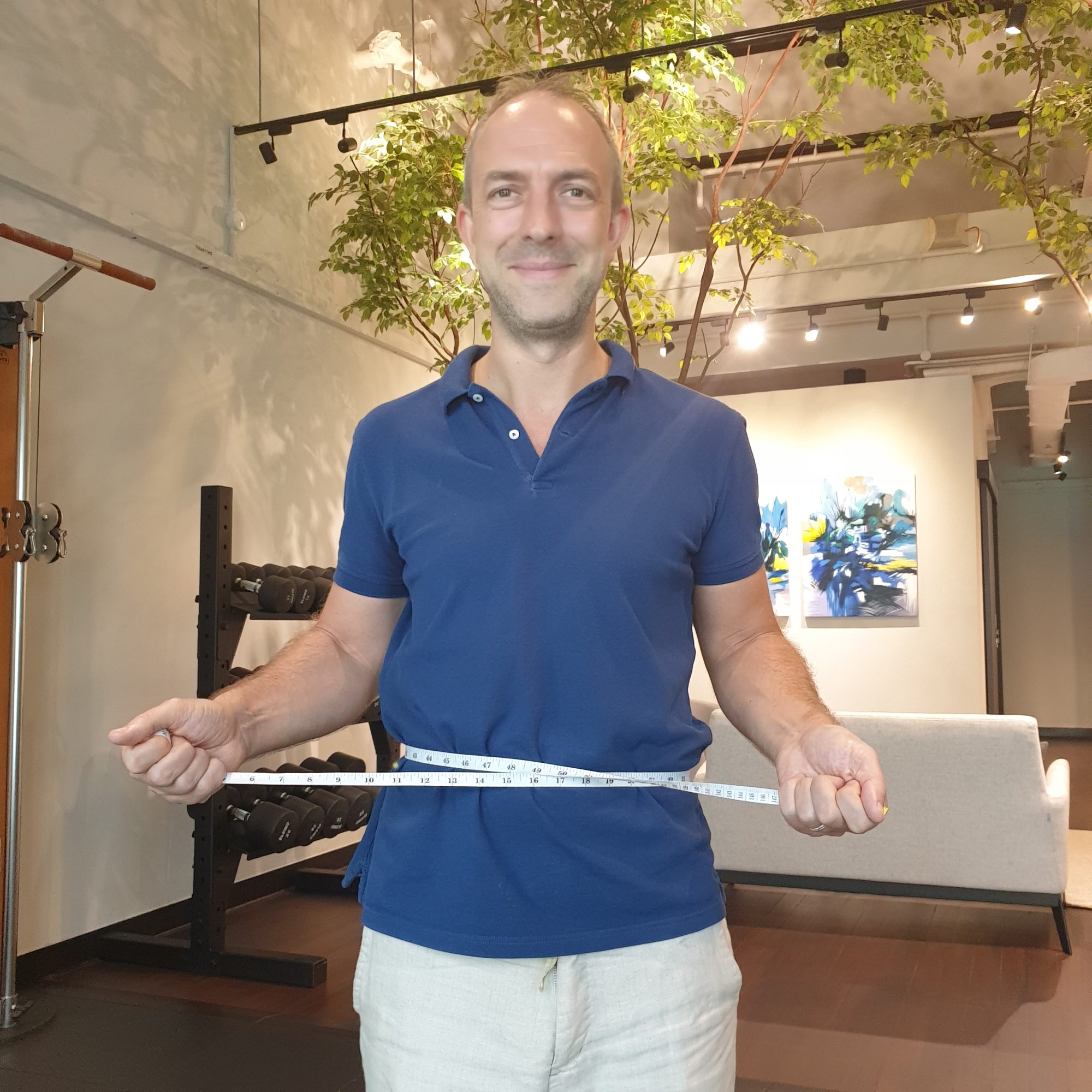
From high cholesterol, high blood pressure and prediabetes to healthiest he’s ever been – how an ex-CEO turned his health around
- After years of smoking, regular alcohol drinking and eating processed foods, Alex Mearns got a wake-up call after a medical check-up prompted by dizzy spells
- He lost 12kg and is now in the best shape of his life after altering his diet – but avoiding ‘fad diets’ – as well as varying his workouts and changing careers
At 46 years old, Alex Mearns is in excellent shape and the fittest and healthiest he’s ever been. He sprints, swims, power walks and strength trains weekly, and enjoys a diet filled with what he calls “real food” – organic meats free of antibiotics and added hormones, wild-caught fish, and vegetables, rice and fruit.
He was a different man a decade ago.
“I smoked up to 20 cigarettes a day, drank alcohol several times a week, and subsisted on a less-than-ideal diet of cereal, sandwiches, and other processed and convenience foods,” shares the Englishman, who has lived in Singapore for about 20 years, ahead of Men’s Health Week (June 13-19).
“That marked a turning point for me and I soon began researching ways to improve my health,” says the former CEO of a fintech company specialising in hedge fund research.

At first, he decided to “move more and eat less” – he joined a gym, hired a personal trainer and drastically cut his calorie intake. But after four months and a lot of money, he didn’t feel any better.
Middle-age weight gain is avoidable – but you have to put the effort in
“Fad diets aren’t sustainable, unless you’re doing one for therapeutic reasons,” he says. “You’ll lose some weight, and then what? It makes no sense. It’s better to make slow, permanent and sustainable changes rather than do something drastic to get immediate results. If you lose weight quickly, you’re likely to put it all back on when you resume your regular diet.”

Today, he applies his knowledge and experience as a health coach at Levitise, a health, fitness and nutrition centre that he founded in 2017.

Dr Tony Wong, a general practitioner at The London Medical Clinic in Central, Hong Kong, agrees that low-calorie fad diets are difficult to implement and sustain, and that some may even cause more harm than good in the long run.
“You’ll probably lose a lot of weight in the beginning, but this weight is mostly water and muscle,” he says. “When you deprive yourself of energy and nutrients, you end up feeling fatigued and may experience gastrointestinal problems. Your mood and sleep quality may also be affected.”
Many fad diets don’t encourage exercise, either, which is essential to a healthy lifestyle. Some fad diets may cause your blood-sugar levels to fluctuate, which can be harmful if you suffer from a medical condition like diabetes, he adds.

Making healthy and permanent lifestyle changes is key to losing excess weight and improving your fitness and well-being over the long-term. Wong says that this means getting enough calories for your level of physical activity as well as for your body’s other energy needs, such as breathing, digesting and sleeping. It also means exercising regularly.
Weight loss should be slow and steady – about 0.5kg a week is considered safe, Wong says.
Mearns says that he’s finally in control of his health after years of experimenting with fad diets and overdoing it at the gym, and not seeing lasting results. For the past decade he’s kept his weight stable at around 70kg. Instead of obsessing over the size of his clothes or the number on the scale, he focuses on his overall well-being and reminds himself that one of his top reasons for changing his lifestyle was his family.

“Exercising like crazy isn’t the answer, and neither is deprivation. Even now, I’ll have the occasional glass of wine, but I make sure it’s organic and biodynamic. I’ll also have a slice of cake if I’m at a party, but it’s usually one that’s gluten-free and made with less sugar,” Mearns says.
“If you want lasting, permanent change, you have to understand the ‘why’ behind it. What’s driving you to want to transform your health? It should be something positive, not negative. Focus on improving your health rather than dropping the kilos. That makes it easier for you to stick to your goals and not get discouraged along the way.”

